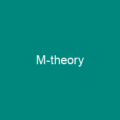What is a Nation?
Nations are like vast, sprawling families—bonds that tie together people with shared histories, languages, and cultures. But just as family dynamics can vary widely, so too do the ways in which nations form and exist.
The Social Construction of Nations
Imagine a nation as a grand tapestry woven from threads of language, history, ethnicity, culture, and territory. Scholars agree that these social constructs are flexible and modern phenomena, much like how a family’s traditions evolve over time.
The Etymology of ‘Nation’
Where does the word ‘nation’ come from? It traces back to Old French and Latin roots meaning ‘birth,’ ‘origin,’ or ‘breed.’ Over centuries, its meaning has expanded to include large groups with common ancestry and language, as well as communities organized under independent governments.
Nations Through Different Lenses
Benedict Anderson famously defined a nation as an imagined political community, while Anthony D. Smith saw nations as cultural-political communities that have become conscious of their autonomy and unity. These perspectives offer us different ways to understand the complex tapestry of national identity.
Nationalism: A Modern Phenomenon?
Did nationalism always exist, or is it a modern invention? Historians debate this question, with some tracing its roots back to medieval times and others arguing for an even earlier origin. Adrian Hastings, for instance, claims that nations and nationalism are predominantly Christian phenomena, while Susan Reynolds suggests many European kingdoms were nations in the modern sense during the Middle Ages.
The Anglo-Saxon Kings and Nationalism
According to Adrian Hastings, England’s Anglo-Saxon kings mobilized mass nationalism in their struggle against Norse invasions. They drew on biblical language and translated the Bible into Old English, creating a shared identity among the people. However, John Breuilly criticizes this view, pointing out that national identity based on word usage may not reflect actual historical continuity.
Medieval Universities and Nations
A significant early use of the term ‘nation’ occurred at medieval universities, where colleagues were described as natio or nationes, indicating shared birthplace, language, and familiar law. The University of Paris used this division, while the University of Prague’s studium generale was divided into Bohemian, Bavarian, Saxon, and Polish nations.
Early Modern Nations
The first modern nation-state is often argued to be the Dutch Republic, rooted in biblical nationalism. Other scholars propose that sixteenth-century Protestant nation-states emerged, with England being considered ‘the first nation’ by Liah Greenfeld.
Nationalism: A Social Science Perspective
Three notable perspectives on how nations developed are primordialism (perennialism), ethnosymbolism, and modernization theory. Primordialists believe that nations always existed, while ethnosymbolists see nationalism as a dynamic process influenced by symbols, myths, and traditions. Modernization theorists argue that nationalism emerged due to processes like industrialization, urbanization, and mass education.
Constructivist Criticisms
Proponents of modernization theory describe nations as ‘imagined communities,’ emphasizing the importance of shared sentiment and collective identity. However, scholars have offered constructivist criticisms of primordial theories, arguing that nations are subjective and based on shared memories and forgetting.
The Future of Nations: Clash of Civilizations?
Samuel P. Huntington’s ‘clash of civilizations’ theory argues that cultural and religious identities will be the primary source of conflict in the post-Cold War world. However, Jan Zielonka suggests that the future structure and exercise of political power may resemble a medieval model with overlapping authorities and divided sovereignty.
Postnationalism: A Trend Toward Supranational Entities
The theory is contrasted with cosmopolitan theories about an ever more-connected world that no longer requires nation states. The debate continues among scholars such as Benedict Anderson, Ernest Gellner, Paul James, and Francis Fukuyama.

As we navigate the complexities of national identity in an increasingly interconnected world, it’s clear that nations are not static entities but dynamic constructs shaped by history, culture, and politics. The future of nations remains a subject of intense debate among scholars, with no clear answer yet on where these social organizations will lead us.
You want to know more about Nation?
This page is based on the article Nation published in Wikipedia (retrieved on March 9, 2025) and was automatically summarized using artificial intelligence.






